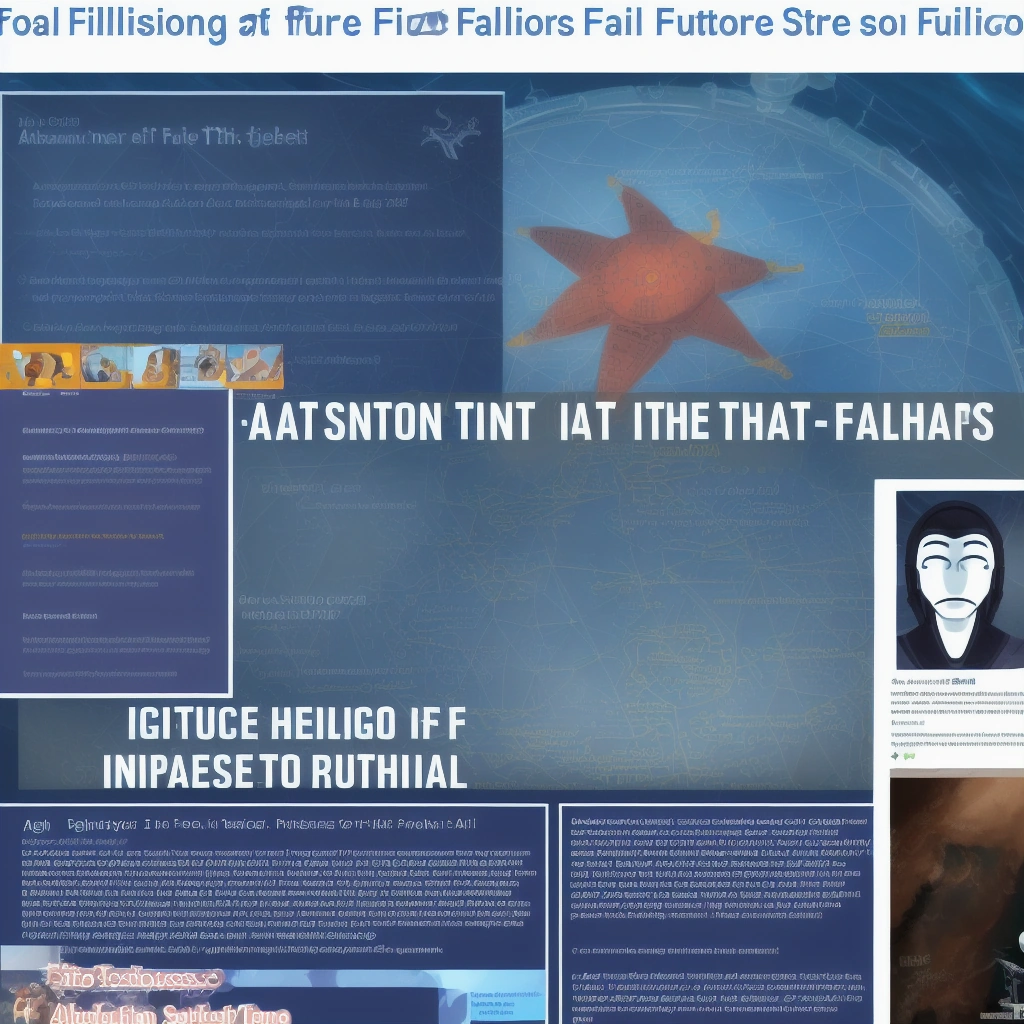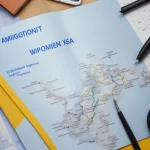AI on the High Seas: Navigating the Future of Filipino Seafaring Jobs
Navigating the AI Tide: A New Era for Filipino Seafarers
The rhythmic pulse of the Maritime Industry, a sector deeply intertwined with the livelihoods of millions, is on the cusp of a profound transformation. Artificial Intelligence (AI), once relegated to the realm of science fiction, is now rapidly reshaping the landscape of seafaring, bringing with it both unprecedented opportunities and daunting challenges for Overseas Filipino Workers (OFWs), who constitute a significant portion of the global maritime workforce. From automated Navigation systems to AI-powered Engine Monitoring, the integration of these technologies is poised to redefine the very nature of seafaring jobs, demanding a proactive and strategic response from Filipino Seafarers to ensure their continued relevance and prosperity in this evolving industry.
This shift necessitates a critical examination of Maritime Industry OFW Opportunities, particularly concerning potential Job Displacement and the imperative for Skills Upgrade initiatives. The integration of AI is not merely about replacing human labor; it’s about augmenting existing capabilities and creating new roles that require a different skillset. For instance, while Automation in Cargo Handling might reduce the need for manual laborers, it simultaneously creates a demand for technicians specializing in Maritime Technology and AI maintenance.
Organizations like AMOSUP (Associated Marine Officers’ and Seamen’s Union of the Philippines) and MARINA (Maritime Industry Authority) play a crucial role in advocating for Filipino seafarers, ensuring they have access to Training Programs that equip them with the necessary expertise to thrive in this technologically advanced environment. These programs should focus on areas such as data analytics, AI system operation, and cybersecurity, enabling seafarers to transition into higher-skilled, higher-paying positions. Furthermore, AI is revolutionizing the landscape of OFW job search and recruitment.
Online platforms are increasingly leveraging AI algorithms to match seafarers with suitable job openings based on their qualifications, experience, and preferences. This technology can help Filipino seafarers identify opportunities that align with their Career Development goals, potentially leading to faster and more efficient job placements. AI-powered tools can also assist in creating compelling resumes and cover letters, increasing the chances of securing interviews. However, it’s crucial to address the digital divide and ensure that all Filipino seafarers, regardless of their location or access to technology, have equal opportunities to benefit from these advancements.
This includes providing digital literacy training and access to affordable internet connectivity. Looking ahead, the future of AI-enhanced OFW rights advocacy is promising. AI can be used to monitor working conditions on ships, identify potential violations of labor laws, and provide real-time support to seafarers in distress. Chatbots powered by AI can offer instant legal advice and guidance, empowering Filipino seafarers to assert their rights and seek redress for grievances. However, it’s essential to ensure that these AI-driven systems are transparent, accountable, and free from bias. Collaboration between government agencies, labor unions, and technology providers is crucial to develop ethical and effective AI solutions that protect the interests of Filipino seafarers and promote fair labor practices within the Maritime Industry.
Automation on Deck: AI’s Expanding Footprint in Maritime Operations
The maritime industry is witnessing a surge in Artificial Intelligence (AI) adoption across various operational domains. Navigation, traditionally a skill honed through years of experience, is increasingly being augmented by AI-driven systems that analyze vast datasets of weather patterns, ocean currents, and vessel traffic to optimize routes and enhance safety. Engine monitoring, another critical aspect of seafaring, is benefiting from AI algorithms that detect anomalies and predict potential failures, enabling proactive maintenance and minimizing downtime.
Cargo handling, too, is being revolutionized by automated systems that streamline loading and unloading processes, improving efficiency and reducing turnaround times. For example, companies like Kongsberg Maritime are developing sophisticated autonomous navigation systems, while firms like ABB are pioneering AI-powered engine monitoring solutions. These technologies are not merely theoretical; they are being deployed on commercial vessels, demonstrating the tangible impact of AI on maritime operations. The integration of AI in the Maritime Industry is creating both anxieties about Job Displacement and unprecedented opportunities for Skills Upgrade among Filipino Seafarers.
While Automation threatens some traditional roles, it simultaneously generates demand for skilled professionals who can operate, maintain, and troubleshoot these advanced systems. Maritime Technology is no longer a futuristic concept but a present-day reality, requiring a proactive approach to Career Development. Organizations like AMOSUP (Associated Marine Officers’ and Seamen’s Union of the Philippines) and MARINA (Maritime Industry Authority) are crucial in facilitating access to relevant Training Programs that equip OFWs with the competencies needed to thrive in this evolving landscape.
The ability to leverage data analytics, understand AI algorithms, and adapt to new technologies will be paramount for Filipino Seafarers seeking to secure their future in the industry. This technological shift necessitates a strategic realignment of recruitment practices and career pathways for OFWs. Technology in OFW Job Search and Recruitment is evolving, with AI-powered platforms matching seafarers with opportunities that align with their upgraded skill sets. These platforms can analyze vast databases of available positions, considering factors such as experience, certifications, and specialized training in AI-related maritime technologies.
Furthermore, AI can assist in identifying skill gaps and recommending targeted training programs, ensuring that Filipino seafarers remain competitive in the global job market. The emphasis is shifting from simply filling positions to strategically matching talent with the demands of an increasingly automated maritime sector. The Future of AI-Enhanced OFW Rights Advocacy is also emerging as a critical area. AI can be used to monitor working conditions, ensure compliance with international labor standards, and provide real-time support to Filipino seafarers facing challenges at sea.
AI-powered systems can analyze data from various sources, including onboard sensors, communication logs, and social media, to identify potential violations of seafarers’ rights. This information can then be used to alert relevant authorities and provide legal assistance to affected individuals. As the maritime industry becomes increasingly reliant on AI, it is essential to ensure that these technologies are used not only to enhance efficiency and profitability but also to protect the rights and well-being of Filipino seafarers.
The Double-Edged Sword: Benefits and Challenges for Filipino Seafarers
The integration of AI presents a double-edged sword for Filipino seafarers. On one hand, it promises increased efficiency, enhanced safety, and improved working conditions. AI-powered systems can automate repetitive and physically demanding tasks, freeing up seafarers to focus on more strategic and complex responsibilities. The predictive capabilities of AI can also help prevent accidents and minimize risks, creating a safer working environment. However, the rise of automation also raises concerns about job displacement. As AI takes over routine tasks in areas like navigation, engine monitoring, and even cargo handling, there is a risk that certain seafaring roles may become obsolete, potentially impacting the employment prospects of Filipino seafarers.
Moreover, the adoption of AI necessitates a significant shift in required skills. Seafarers will need to acquire new competencies in areas such as data analysis, system maintenance, and AI-driven decision-making to remain competitive in the evolving job market. Industry leaders like the Associated Marine Officers’ and Seamen’s Union of the Philippines (AMOSUP) acknowledge the need for proactive measures to mitigate potential job losses and ensure that Filipino seafarers are equipped with the skills needed to thrive in the age of AI.
The Maritime Industry is actively exploring solutions to address these challenges. MARINA, the Maritime Industry Authority, is collaborating with training institutions to develop specialized training programs focused on Maritime Technology and AI. These programs aim to equip Filipino seafarers with the skills necessary to operate and maintain AI-powered systems, ensuring they remain valuable assets in the evolving workforce. Furthermore, initiatives promoting career development and skills upgrade are crucial. These include offering certifications in areas such as data analytics, cybersecurity for maritime systems, and remote diagnostics for ship machinery, providing Filipino seafarers with a competitive edge in the global market.
Beyond skills development, the future of AI-enhanced OFW rights advocacy is also taking shape. Artificial Intelligence can be leveraged to monitor working conditions, ensure fair treatment, and provide access to legal resources for Filipino Seafarers working abroad. AI-powered platforms can analyze contracts, track wage payments, and identify potential violations of labor laws, empowering OFWs to assert their rights and seek redress when necessary. This proactive approach, combined with robust training and career support, will be essential in ensuring that Filipino seafarers not only survive but thrive in the age of Artificial Intelligence.
Charting the Course: Adoption Rates and Emerging Technologies
AI-driven technologies are rapidly transitioning from development to deployment within the maritime industry. Autonomous vessels, capable of navigating and operating with minimal human intervention, are already being tested in various parts of the world. AI-powered predictive maintenance systems are becoming increasingly common on modern ships, enabling proactive maintenance and reducing downtime. Smart cargo handling systems, utilizing AI and robotics, are streamlining port operations and improving efficiency. Experts predict that the adoption rate of these technologies will accelerate significantly within the next 5-10 years.
Factors such as increasing pressure to reduce costs, improve safety, and comply with environmental regulations are driving the adoption of AI solutions. However, the pace of adoption will also depend on factors such as the availability of skilled personnel, the cost of implementation, and the regulatory framework. Organizations like the Maritime Industry Authority (MARINA) are actively exploring ways to promote the adoption of AI while ensuring that Filipino seafarers are adequately prepared for the changes ahead.
The increasing automation of vessel operations presents both opportunities and challenges for Filipino Seafarers. While AI promises to enhance safety and efficiency in Navigation and Engine Monitoring, it also raises concerns about potential Job Displacement in traditional roles. AMOSUP, the Associated Marine Officers’ and Seamen’s Union of the Philippines, is actively engaging with industry stakeholders to address these concerns and advocate for policies that protect the interests of OFWs. The focus is on ensuring that Filipino seafarers are equipped with the Skills Upgrade necessary to thrive in an increasingly automated Maritime Industry.
This includes embracing Maritime Technology and participating in Training Programs that focus on AI-related skills. Furthermore, the rise of AI offers new avenues for Career Development within the Maritime Industry. As AI systems become more prevalent, there will be a growing demand for professionals who can manage, maintain, and optimize these technologies. This creates opportunities for Filipino seafarers to transition into roles such as AI system operators, data analysts, and remote vessel managers. MARINA is collaborating with educational institutions to develop specialized training programs that cater to these emerging roles.
By investing in these skills, Filipino seafarers can position themselves at the forefront of Maritime Technology and secure their long-term career prospects. The integration of AI also necessitates a proactive approach to OFW rights advocacy, ensuring fair labor practices and safe working conditions in this evolving landscape. Moreover, Technology in OFW Job Search and Recruitment is also being revolutionized by AI. Platforms are now leveraging AI algorithms to match Filipino seafarers with suitable job opportunities based on their skills, experience, and preferences. This not only streamlines the recruitment process but also ensures that seafarers are placed in roles where they can maximize their potential. AI-powered tools can also assist seafarers in preparing for interviews and assessments, improving their chances of success. The Future of AI-Enhanced OFW Rights Advocacy includes using AI to monitor recruitment practices and identify potential cases of exploitation or unfair treatment, ensuring that Filipino seafarers are protected throughout their employment journey.
Staying Afloat: Actionable Advice for Filipino Seafarers
To navigate the AI tide successfully, Filipino seafarers must embrace a proactive approach to skills development and career planning. This includes investing in training programs that focus on areas such as data analysis, system maintenance, and AI-driven decision-making. Seafarers should also actively seek opportunities to gain experience with new technologies and adapt their skillsets to meet the evolving demands of the industry. The future maritime professional will not only possess traditional seafaring expertise but also a strong understanding of the digital systems that increasingly govern ship operations, from automated navigation to AI-enhanced engine monitoring.
This blend of conventional skills and technological proficiency is crucial for securing future Maritime Industry OFW Opportunities. Recommended training programs should extend beyond basic computer literacy to include specialized courses in data science, machine learning, and advanced Maritime Technology. Career development strategies should focus on acquiring certifications relevant to AI-driven systems and proactively seeking opportunities to work on vessels equipped with these technologies. For example, certifications in operating and maintaining specific AI-powered navigation systems or engine monitoring platforms can significantly enhance a seafarer’s marketability.
Moreover, familiarizing oneself with software used in cargo handling optimization, such as those employing AI for predictive analysis of cargo conditions, is becoming increasingly valuable. The Associated Marine Officers’ and Seamen’s Union of the Philippines (AMOSUP), in collaboration with MARINA, is exploring partnerships with international training institutions to offer such specialized courses, recognizing the urgent need for Skills Upgrade among Filipino Seafarers. Beyond formal training, Filipino seafarers should leverage Technology in OFW Job Search and Recruitment to identify opportunities that prioritize AI-related skills.
Online platforms are increasingly incorporating AI-driven matching algorithms that connect seafarers with employers seeking specific technological expertise. Networking through professional online communities and attending industry conferences focused on Maritime Technology can also provide valuable insights and connections. Furthermore, actively participating in online forums and discussions related to AI in the Maritime Industry allows seafarers to stay abreast of the latest developments and demonstrate their interest to potential employers. This proactive engagement is key to Career Development in an era where AI is rapidly transforming the seafaring profession.
Maritime labor organizations are actively advocating for government and industry support to provide affordable and accessible training opportunities for Filipino seafarers, ensuring a just transition into the future of work and promoting AI-Enhanced OFW Rights Advocacy. These organizations are also working to ensure that the benefits of AI, such as increased safety and reduced workload, are shared equitably with seafarers. They are pushing for policies that prioritize retraining and upskilling initiatives over Job Displacement, and that establish clear guidelines for the ethical and responsible implementation of AI in the Maritime Industry. This includes advocating for fair wages and working conditions that reflect the enhanced skills and responsibilities required to operate in an AI-driven environment. By embracing lifelong learning and actively engaging with industry stakeholders, Filipino seafarers can ensure their continued relevance and prosperity in the age of AI.


